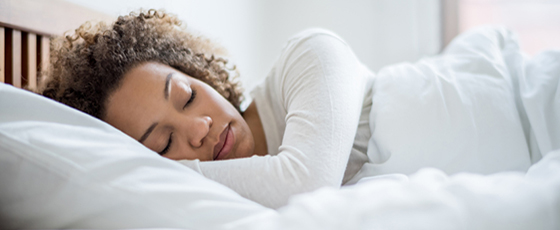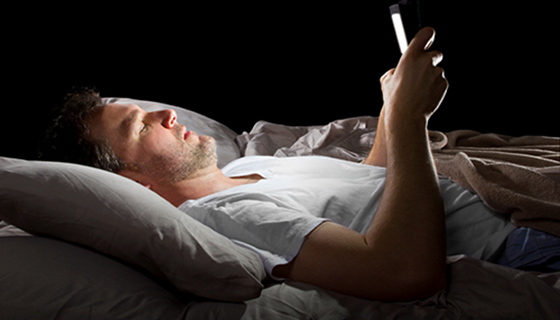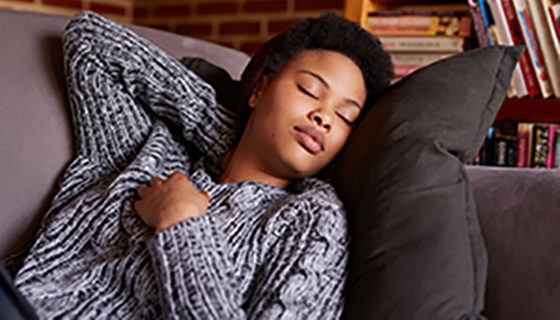Self-Care Solutions: Five Ways to Teach Yourself to Sleep Better

As you lie down at night and shut your eyes in hopes of a restful night’s slumber, sometimes your mind has other plans. It is not exactly an opportune time to reminisce about the day or worry about the next, which can make it difficult to get sound sleep. And without sleep, caffeine intake increases, moods fluctuate, and healthy diets slide. It can also make it tough to operate as a happy, productive person throughout the week.
According to the American Academy of Sleep Medicine, approximately 30 percent of Americans have symptoms of insomnia. Insomnia is different than occasional sleeplessness in that it can cause anxiety, depression, and disruption from everyday life. Sleep is a key component to maintaining your mental health, so as part of Mental Health Awareness Month we wanted to share advice on how to sleep better. Whether you suffer from a few nights a week of cartoon-eyed, thumb-twiddling sleeplessness or you know the entire late-night TV lineup, here are a few ways to learn how to teach yourself to sleep better.
Power down the electronics

Phones, tablets, and TVs are not, in fact, permanently attached to you. We’ve grown accustomed to having electronics handy to work and be social. But what we’ve forgotten is that all this noise distracts us from practicing true mindfulness and being able to decompress at the end of the day. According to the National Sleep Foundation, electronics emit light that promotes wakefulness by signaling your brain to stay alert through the photoreceptors in your eyes. Aim to power down one to two hours before bedtime.
Sleep somewhere else

If you are losing sleep night after night, it is easy to start seeing your bedroom as a place of restlessness. This actually encourages more sleepless nights. If you are stuck in a holding pattern, try sleeping in a different position or somewhere else entirely. Try lying with your feet where your head usually is, or sleep sideways on the bed. Other options are sleeping on the couch, on the floor, or in a guest bedroom.
Use essential oils

Calm down your nervous system with essential oils like lavender, chamomile, mandarin, ylang ylang, neroli, lemon, or jasmine. Put a few drops of oil on a damp cloth and rest it on your forehead. Inhaling these relaxing smells can help ease you into a night of restful bliss.
Employ deep-breathing methods

Taking yourself through a few deep-breathing exercises can be one of the quickest ways to get some shut-eye. An easy one to remember is breathing in for the count of eight and exhaling for the count of eight. Breathe through your nose. Exhaling allows fresh oxygen to be absorbed, but exhaling through your nose in particular enables you to absorb the most amount of oxygen. Also, breathing out of your mouth stimulates your nervous system and encourages possible hyperventilation. If you are prone to panic attacks, always be sure to keep breathing through your nose.
Mind your diet

While ribs and French fries sound like an amazing dinner, a diet high in fat, sodium, and sugar can keep you awake for a number of reasons. Eating this way will raise blood pressure, promote acid reflux, and change your digestive routine to make it uncomfortable to sleep. Also, eating right before bed can increase sleep difficulty.
In addition to food, what and when you drink is important. Drinking too much water throughout the day or too close to bedtime can result in multiple nighttime trips to the bathroom. Drinking too much alcohol late at night can make your heart race because you are too dehydrated. Find a balance between too much and too little water.
No matter the reason you can’t sleep, it takes practice to learn to sleep better. But having a pocket full of tips like these gives you options and a more positive attitude about getting your Zs.

